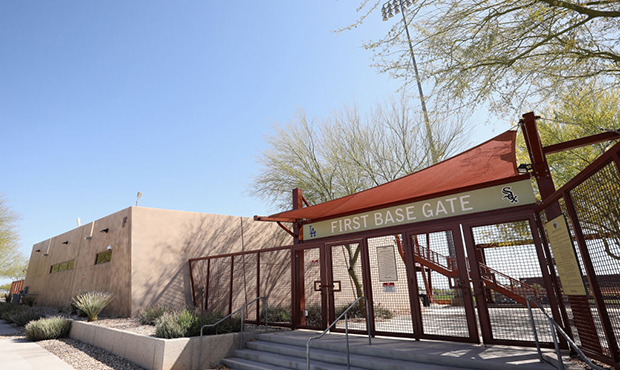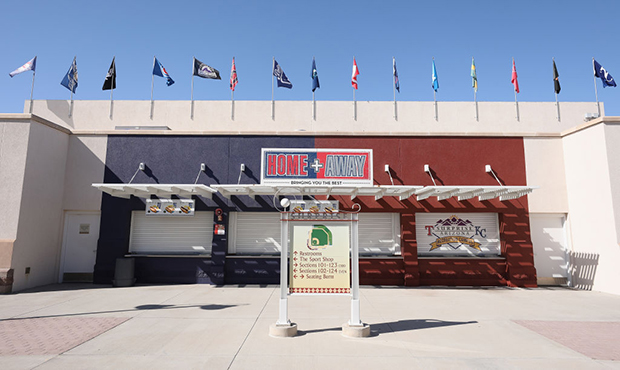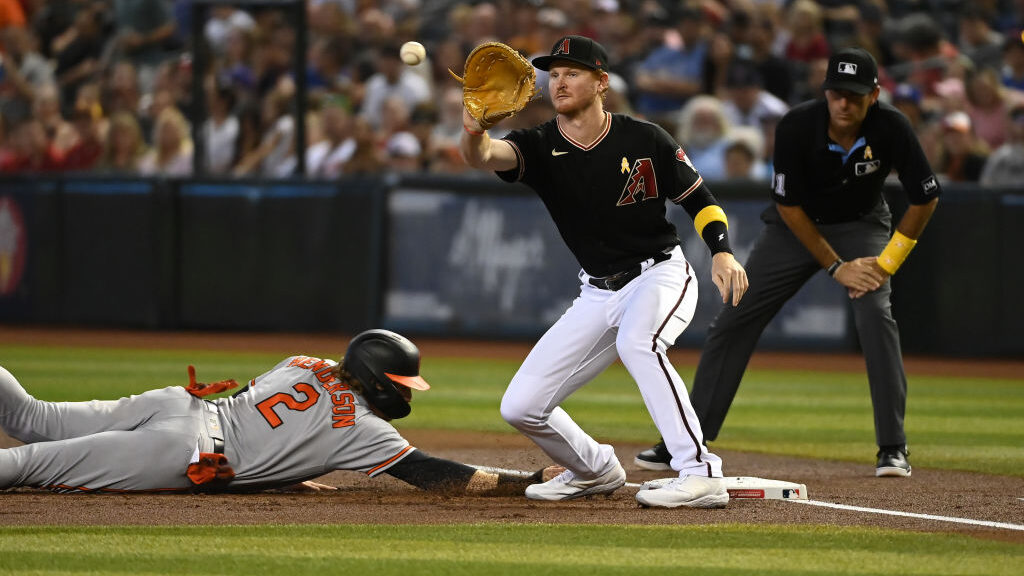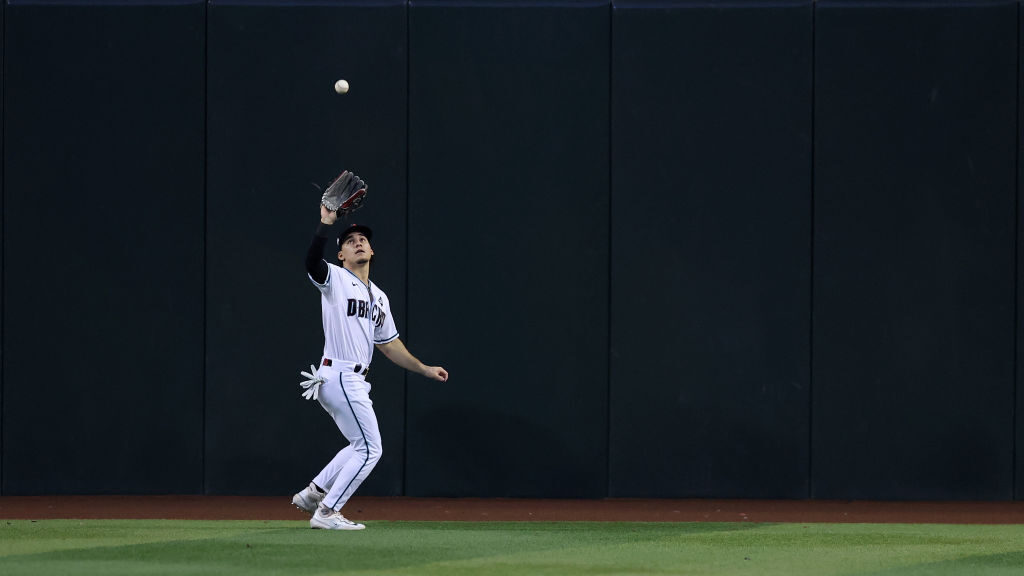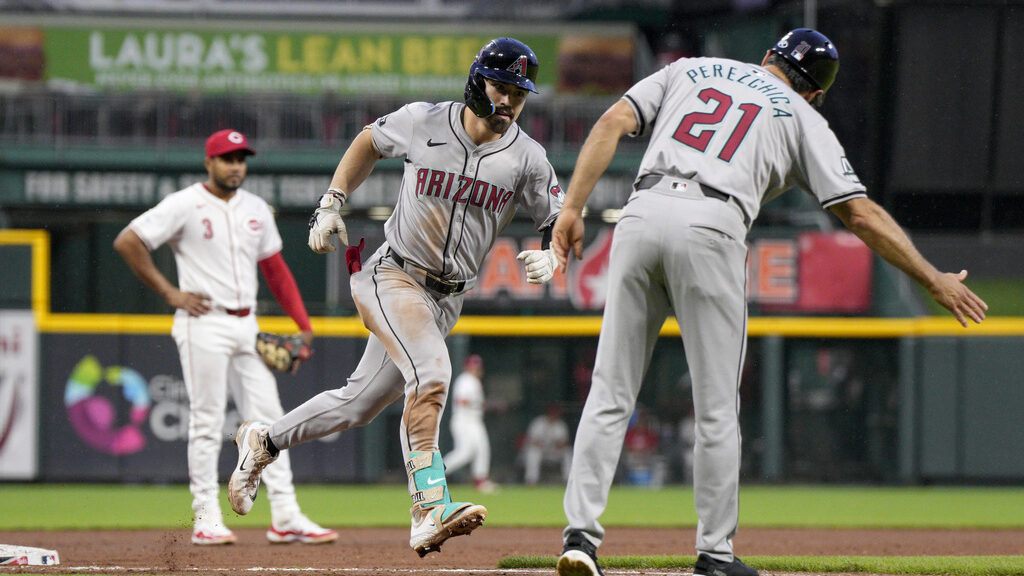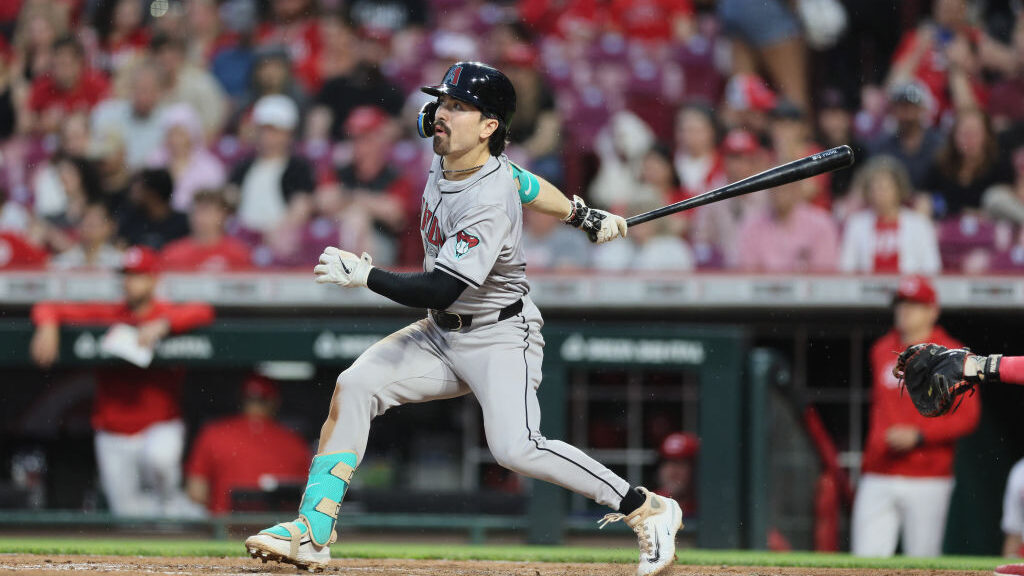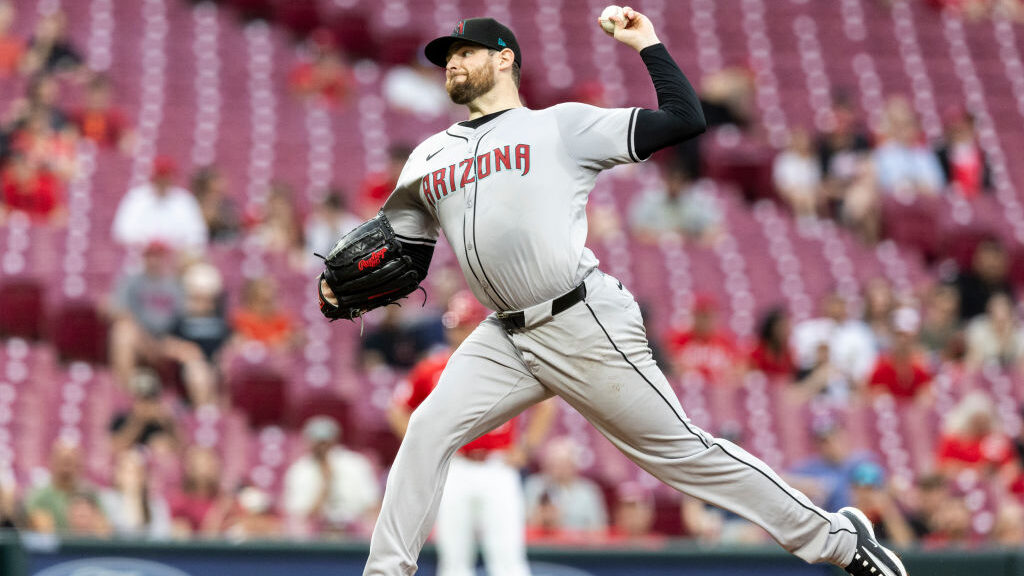Passan: All 30 MLB teams in one place may be preferable to AZ-Florida split
Apr 15, 2020, 10:26 AM
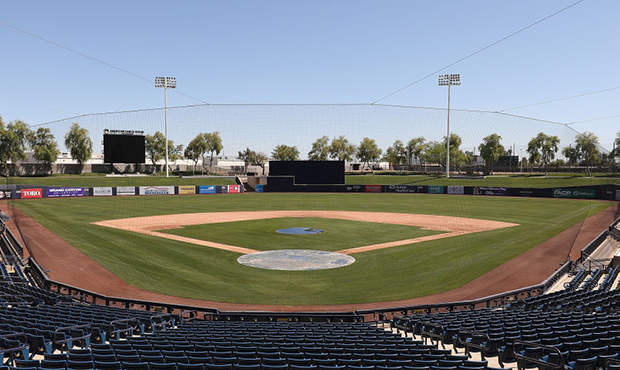
General view inside of the Milwaukee Brewers spring training facility, American Family Fields of Phoenix on April 07, 2020 in Phoenix, Arizona. According to reports, Major League Baseball is considering a scenario in which all 30 of its teams play an abbreviated regular season without fans in Arizona's various baseball facilities, including Chase Field and 10 spring training venues. (Photo by Christian Petersen/Getty Images)
(Photo by Christian Petersen/Getty Images)
The reported proposals to start Major League Baseball back up without fans at spring training parks has included at least two high-profile variations.
One would be to put all 30 MLB teams in Arizona, having them play at the Cactus League ballparks and perhaps other facilities. The second proposal splits teams between their Cactus League and Grapefruit League homes in Arizona and Florida, respectively.
ESPN insider Jeff Passan, who first reported on the idea of putting all the teams in the desert, joined Doug & Wolf on Wednesday and indicated that having teams in one place could eliminate some logistical issues.
For example, the Cactus League parks are all in the Phoenix metro area within Maricopa County, while the parks in Florida are spread all throughout the state in different cities and counties.
“I suppose you can argue that you mitigate risk a little bit by spreading people out and not having everyone in the same area,” Passan conceded. “But you also run into even more logistical nightmares [in Florida] when you’re dealing with multiple metropolitan areas that have their own politics, that have their own ideals, that have their own rules. And so when you are in one area, it streamlines the process significantly.
“And as we know, in the Phoenix area, the summer months tend not to be very busy when it comes to hotels or resorts or these areas that would be vital to this plan actually working. Now listen, admittedly, there are a hundred different things that can go wrong here and that can scuttle this. But in the end, if you are dealing with a binary situation, which is either you try it this way or you don’t play baseball this year, I think you try it this way, so long as you can do it in a healthy and conscientious fashion.”
One well-documented snag in the proposal to put teams in Arizona is the necessity of putting the players and staff in isolation. After all, if large gatherings are banned, then putting together teams of players, clubhouse staff, athletic trainers, coaches, executives, umpires and more would violate the spirit of social distancing. The league can mitigate that by keeping these groups isolated from the outside world.
Players, though, may balk at the idea of not seeing their spouses, children and families for long periods of time while isolated to play part or all of a baseball season.
“I think a lot of it depends on whether families can come,” Passan said. “I think if we get to a point where MLB says, ‘If families coming is what needs to be done in order for this to happen, we will make that work,’ I think you have baseball in Phoenix. I think it is that simple.
“Now … this is an important caveat to include so I don’t want those words to be taken singularly, because there is a second part of this: If they wait, there is a chance — if they wait on this plan, they say, ‘We can’t logistically figure out how to create a city, we’re just not equipped to do that, the government’s going to have to put its resources somewhere else, they’re not going to help us.’ If they get to that point, theoretically, they can wait this thing out, hope that it gets better and maybe come July, a season starts.”
In other words, perhaps these unusual scenarios for playing a season may not be necessary if the coronavirus situation permits teams to play in their home ballparks later this summer to begin a shortened season.
“Dr. [Anthony] Fauci said pretty much what I said yesterday on Get Up,” Passan said. “I said, ‘Arizona or bust.’ That is increasingly what it is feeling like, but Major League Baseball also doesn’t want to admit that, because if the Arizona plan doesn’t happen, they don’t want it to look like their season is done with.”
That, however, would be complicated by governments that have already said sporting events won’t be held in their city. California Gov. Gavin Newsom said in a press conference Tuesday that having mass gatherings in his state wasn’t likely to happen any time soon.
“The prospect of mass gatherings is negligible at best until we get to herd immunity and we get to a vaccine,” Newsom said. “So large-scale events that bring in hundreds, thousands, tens of thousands of strangers altogether across every conceivable difference, health and otherwise, is not in the cards based upon our current guidelines and current expectations.”

